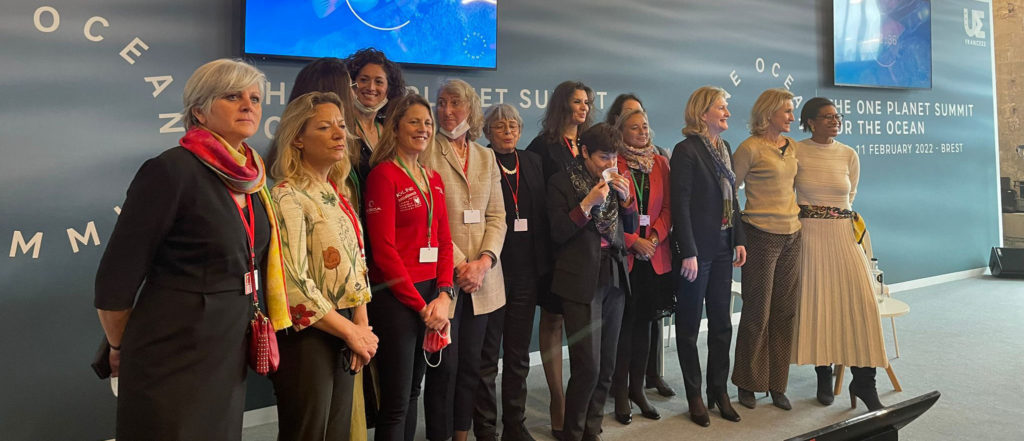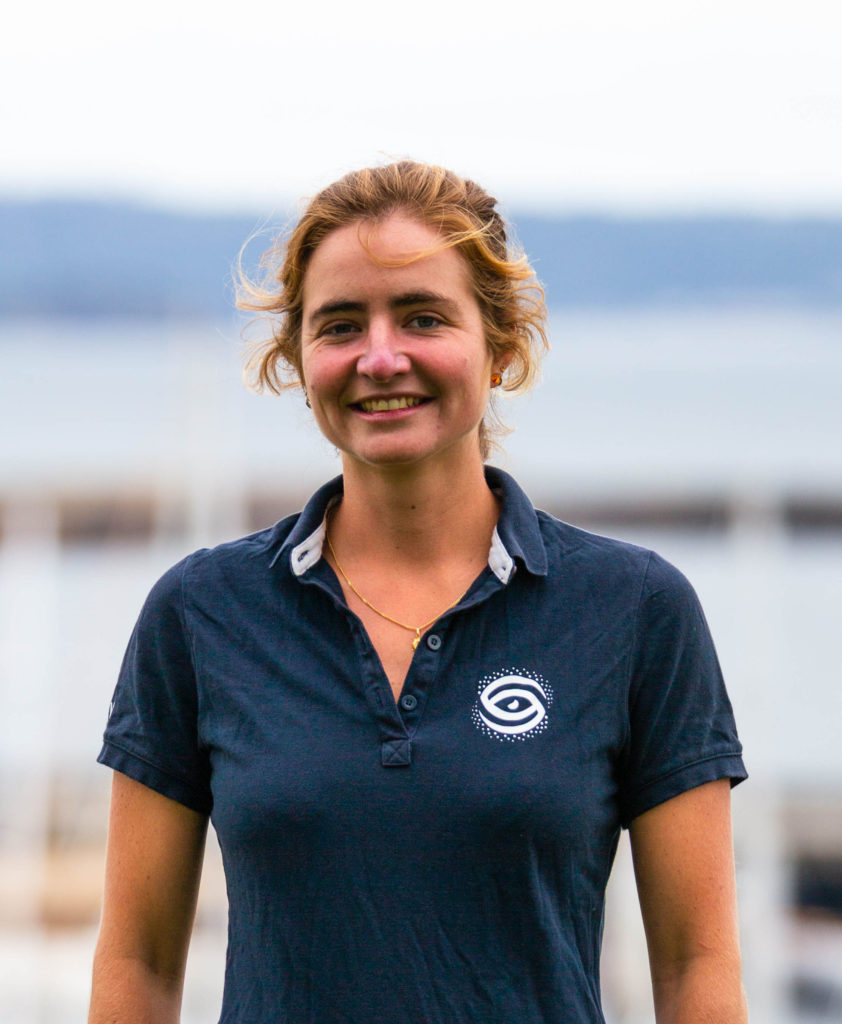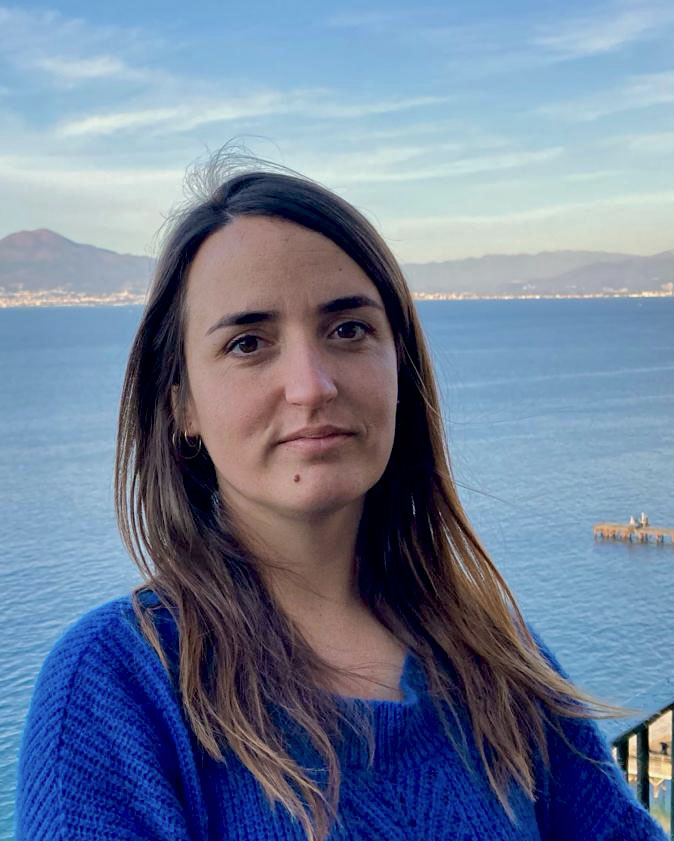
As the One Ocean Summit honors the place of women in maritime activities and the International Day of Women and Girls in Science takes place today, discover the portraits of Eloïse Le Bras and Claire Papot, our two scientists passionate about marine biology.
Eloïse Le Bras, Biologist and Sailor

What is your background?
Since my earliest childhood, I have lived with the ocean in an unconditional communion. My curiosity has always pushed me to multiply experiences related to the sea. After a classical study cycle and obtaining a Master’s degree in environmental management that I managed to complete thanks to the Erasmus program in 5 different countries (France, Germany, Russia, Spain, Indonesia), I joined the NGO “Earthworm Foundation” to work on the traceability of various products (essential oils, charcoal, etc).
Then in 2019, I joined Iodysseus, a United Nations-recognized ocean biosphere research and public outreach program.
I embarked on the expeditions and then joined the Iodysséus structure as a civic service and then full time. I discovered deep-sea sailing through scientific sailing expeditions. That’s when I realized that I could combine my job as a biologist with my passion for sailing.
What is your job at Blue Observer?
I am a shipboard biologist and a sailor. This double role allows me to be on watch and perform navigation maneuvers while carrying out marine biology manipulations: collection of marine and aerial plankton following strict protocols for our partner laboratories, salinity and surface water temperature measurements and weather observation, among others.
At the beginning of the Blue Observer project, I participated in the reflections on the activities and on the feasibility, in the first exchanges with our partners as well as in the renovations and improvements of the boat at the time of its acquisition.
The ocean in 3 words?
Extreme: in the open sea, everything is multiplied tenfold, the cold is very cold, the heat is terribly hot. The elements that we know in coastal navigation take on impressive dimensions: the wind strengthens, the waves deepen. The ocean is truly an extreme environment.
Serenity: when the boat glides on the water, you let yourself be carried and your mind wanders from wave to wave. We realize that we are very small in the middle of the immense ocean and we let ourselves be rocked.
Life: The ocean is not only the production of oxygen and the sink of planetary carbon, it IS life. An incredible biodiversity evolves in 3D while respecting the harmony of food webs. Even if many species are threatened today, the ocean will always be there.
Claire Papot, Scientific Manager

What is your background?
I have a training in biology of marine organisms at the Institut Universitaire Européen de la Mer of Plouzané and a thesis in molecular evolution that I did between the University of Lille and the Station Biologique de Roscoff.
During this thesis, I studied the evolutionary mechanisms that shaped the history of a family of genes that encode antibiotic molecules synthesized by marine worms. At the base, I have a curriculum focused purely on fundamental research which is essential to participate in the acquisition of knowledge on marine ecosystems.
But there was also an applied side to my research work since it was based on antibiotic molecules with potential applications in human health. It’s this aspect of valorization of molecules from marine organisms that I wanted to explore and it’s among other things what I’m going to do within Blue Observer.
What is your job at Blue Observer?
Within Blue Observer, I am responsible for the scientific aspects of biology and microbiology. I am in charge of a project to create a “souchothèque” (strain library) in collaboration with the Roscoff Biological Station and supported by the Brittany region. Planktonic microorganisms and marine aerosols will be isolated and can be proposed to industry to initiate or improve their ecological transition. The goal will be to develop natural products from these marine organisms in cosmetics, nutraceuticals and health. Still on the marine biology side, I will also follow the requests of scientific collaborative projects since a biology/microbiology laboratory has been developed within the sailing ship Iris. There is also a whole activity of research and follow-up of potential partnership for innovation in connection with marine biology.
The ocean in 3 words?
Biodiversity of course. The marine biodiversity is extraordinarily rich. There is much to marvel at. In spite of this, it is still largely unknown: for example, at the level of micro-organisms, it is estimated that 99% of species remain to be discovered. Research still has a long way to go!
I would also say responsibilities since we collectively have a role to play to protect the first lung of the Earth and it seems to me that some solutions can emerge directly from the oceans.
Secondly, freedom is the feeling I get every time I go sailing, it clears my head and it is refreshing.